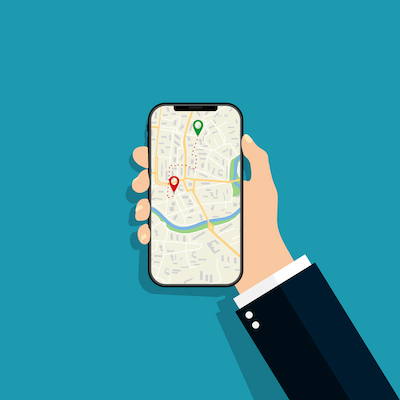Chicago Uber and Lyft Sexual Assault Lawsuit Attorneys
 The explosive growth of ridesharing has changed how we travel, making transportation more convenient than ever. However, this convenience has also brought new risks, including reports of sexual assaults involving Uber and Lyft drivers. Victims have started to file lawsuits nationwide, alleging that these companies failed to properly vet drivers, monitor complaints, and keep riders safe.
The explosive growth of ridesharing has changed how we travel, making transportation more convenient than ever. However, this convenience has also brought new risks, including reports of sexual assaults involving Uber and Lyft drivers. Victims have started to file lawsuits nationwide, alleging that these companies failed to properly vet drivers, monitor complaints, and keep riders safe.
We discuss here how common these assaults are, what passengers are most at risk, what kinds of abuse are reported, these companies’ hiring and monitoring policies, and what legal options are available to survivors.
How Common are Sexual Assaults by Rideshare Drivers?
Determining how often sexual assaults occur in ridesharing vehicles is a measurable and well-documented problem. Uber, under pressure from regulators and victim advocates, has released multiple U.S. Safety Reports revealing alarming statistics:
- In 2019–2020 alone, Uber reported 3,824 sexual assaults, including 141 reports of rape.
- Passengers comprised about 43% of reported survivors but rideshare drivers were also victims in about 39% of the cases.
- Roughly 99.9% of Uber trips occurred without a safety incident but given Uber’s scale (billions of trips per year), even a fraction of a percent translates to thousands of victims.
Lyft has reported similar numbers. In a recent safety report, Lyft disclosed:
- Over 4,000 reports of sexual assaults, including 360 reports of rape.
- Lyft faced over 100 civil lawsuits as of 2023 alleging assaults that plaintiffs say could have been prevented with proper screening and driver monitoring.
Sexual assaults are chronically underreported nationwide, so experts suspect that the true number of rideshare-related assaults is much higher than company reports suggest. According to some statistics, the true number of sexual assault related complaints made to Uber actually totaled over 400,000 during one 5 yar period – about 10 times what Uber has reported.
Which Riders are Most at Risk for Sexual Assault?
While anyone can become a victim, certain riders are statistically more vulnerable:
- Women and young adults (ages 18–34) represent the largest group of reported victims in rideshare assaults.
- Late-night riders leaving bars, concerts, or parties are at heightened risk due to alcohol consumption, isolation, and reduced alertness.
- Tourists and visitors unfamiliar with local streets may be less likely to notice route deviations or to exit the vehicle.
- Individuals traveling alone — especially when seated in the front passenger seat — are more vulnerable than groups.
Advocacy organizations emphasize that these risks are not the rider’s fault. The duty to provide a safe ride ultimately rests with the rideshare companies and their drivers.
What Kinds of Unwanted Sexual Abuse Has Been Reported by Riders?
The spectrum of reported abuse ranges from verbal harassment to violent sexual assaults. Documented allegations in lawsuits and safety reports include:
- Sexual comments or propositions, including drivers asking invasive questions or making lewd suggestions.
- Unwanted touching, groping, or kissing.
- Drivers locking doors and refusing to let riders exit, creating a hostage-like scenario.
- Forcible rape or attempted rape in the vehicle or after following the passenger to their destination.
- Drugging incidents, where riders report blacking out after being offered drinks or smelling unusual fumes in the car.
Each of these behaviors constitutes a violation of basic passenger safety and, in many cases, criminal conduct. Survivors often experience severe psychological trauma, including PTSD, anxiety, and fear of future ridesharing.
Are Poor Hiring and Vetting Practices a Contributing Factor?
One of the core allegations in lawsuits against Uber and Lyft is that negligent hiring and inadequate vetting allowed dangerous individuals to become drivers.
Uber’s Policies
Uber states that it uses a third-party background check before onboarding drivers, which includes:
- Social Security trace, driver’s license record check, as well as county, state, and federal criminal screenings.
- Continuous criminal monitoring to flag new arrests or convictions.
- Disqualification for convictions involving sexual assault and other violent crimes.
However, critics point out that Uber does not consistently use fingerprint-based background checks, which some argue would catch more offenders. Furthermore, the company has faced lawsuits alleging that it allowed drivers with prior criminal records to stay on the platform despite red flags.
Lyft’s Policies
Lyft has similar requirements, including:
- Pre-hire background checks and annual re-screenings.
- Continuous criminal monitoring that can deactivate drivers when new offenses are detected.
- Zero-tolerance policies for sexual misconduct.
Nevertheless, lawsuits argue that Lyft often fails to respond quickly to complaints, allowing dangerous drivers to continue operating even after multiple rider warnings.
Overall, while both companies have strengthened their safety protocols in recent years, lawsuits contend that these measures remain reactive rather than preventative, and they do not adequately protect vulnerable riders.
What Can I Do if I was Sexually Assaulted by an Uber or Lyft Driver?
If you believe you were sexually assaulted during a rideshare trip, your first priority should be safety and preservation of evidence. Consider taking the following steps:
- Call 911 or go to a safe location immediately. If you are in immediate danger, emergency responders can help.
- Report the assault to the police. A formal police report documents what happened and can be crucial in prosecuting the offender.
- Seek medical attention. Hospitals can perform a sexual assault forensic exam (“rape kit”) and provide treatment for injuries or potential exposure to STIs or STDs.
- Preserve evidence. Save ride receipts, driver profile screenshots, and any text communications. Avoid showering or discarding clothing until evidence can be collected.
- Report the incident to Uber or Lyft. Both companies have in-app safety features for reporting assaults.
- Consult with an experienced sexual assault attorney. A lawyer can help you evaluate your rights, pursue a civil lawsuit, and hold both the driver and company accountable.
Should I Hire an Attorney?
Hiring an attorney is often critical in these cases — not only to protect your rights but also to send a clear message that this conduct will not be tolerated. Key reasons to consult a lawyer include:
- Seeking Justice and Compensation – Civil lawsuits can recover money for medical expenses, counseling, lost wages, and pain and suffering.
- Preventing Future Assaults – Legal action pressures rideshare companies to improve screening, monitoring, and response systems.
- Empowerment and Closure – Many survivors find a sense of justice and empowerment in holding wrongdoers accountable through the legal system.
- Resources for Healing – A settlement can fund mental health care, therapy, and other resources to support long-term recovery.
Sexual assault attorneys, such as those at Sexner Injury Lawyers LLC, work on a contingency fee basis — meaning you pay no attorney fees until they recover money for you.
Can I Sue the Company as Well as the Driver?
Yes. In many cases, survivors pursue sexual abuse lawsuits against both the individual driver and the rideshare company. Legal theories often include:
- Negligent hiring, retention, and supervision – alleging that the company failed to screen or monitor the driver properly.
- Failure to warn – claiming that the company knew or should have known the driver posed a risk.
- Vicarious liability – arguing that the driver was acting as an agent of the company during the trip.
Uber and Lyft often argue that drivers are “independent contractors,” not employees, to limit liability. However, many courts have allowed claims to proceed, particularly when there is evidence of systemic negligence.
Real-World Lawsuits, Settlements, and Verdicts Involving Uber and Lyft
Below are notable examples that illustrate how courts, regulators, and litigants have been addressing sexual-assault allegations tied to rideshare platforms. Where available, we’ve included reported settlement and verdict amounts:
California regulators vs. Uber — $9 million settlement
- What happened: After initially fining Uber $59 million for withholding sexual-assault data requested by regulators, the California Public Utilities Commission (CPUC) approved a $9 million settlement resolving the dispute and funding survivor-support and safety initiatives.
- Why it matters: Although not a payout to individual victims, it formally penalized Uber’s handling of sexual-assault reporting and helped fund programs for survivors.
California / Uber sexual-assault involving 2,000+ cases
- What happened: California state courts coordinated Uber driver-on-passenger sexual-assault cases in San Francisco (JCCP), with more than 2,000 suits pending as of early 2025.
- Why it matters: Parallel state coordination increases litigation pressure and can accelerate reforms and global settlement talks.
Large-scale filings against Uber — over 550 women in one filing
- What happened: In 2022, attorneys filed a mass action representing more than 550 women who alleged sexual assaults by Uber drivers, shortly after Uber released its 2019–2020 safety report.
- Why it matters: Demonstrates the widespread nature of the allegations and the momentum of coordinated litigation.
Lyft & Days Inn — $9 million civil settlement (Pennsylvania case)
- What happened: In a case involving an 11-year-old victim, Lyft and two Days Inn hotels agreed to pay $9 million to resolve claims that their conduct enabled the assault; allegations included multiple Lyft rides despite obvious red flags.
- Why it matters: Dollar figures in a rideshare-linked sexual-assault case made public can demonstrate that legal exposure extends beyond the driver and can include other businesses as well.
San Francisco Lyft Lawsuits — 14 plaintiffs, then 19 more added
- What happened: Fourteen women first sued Lyft in San Francisco alleging rape/assault and negligent safety practices; nineteen more women filed shortly thereafter.
- Why it matters: Early, highly publicized filings put Lyft’s vetting and response protocols under scrutiny and led to continuing litigation nationwide.
Criminal conviction of former Texas Lyft driver
- What happened: A TX jury convicted a former Lyft driver of aggravated kidnapping and sexual assault stemming from a 2024 incident. (Criminal case; civil damages would be separate.)
- Why it matters: Criminal outcomes can strengthen parallel civil claims (liability, punitive exposure) even if dollar amounts haven’t been yet determined.
Connecticut Lyft negligence case allowed involving wrongful-death
- What happened: A federal judge allowed negligence/wrongful-death claims to proceed where a Lyft ride allegedly assisted in a death. While not a sexual-assault case, the opinion discusses Lyft’s duties in extreme risk scenarios. Civil monetary amounts not yet determined.
- Why it matters: Courts are increasingly examining the scope of duties for rideshare platforms when red flags appear, an analysis that carries over to sexual-assault scenarios.
Most individual civil settlements are confidential, so public records usually don’t disclose the millions upon millions of dollars that are privately negotiated.
What Are Typical Payout Ranges in Rideshare Sexual-Assault Cases?
While every case turns on its own particular facts (injury severity, corroboration, prior complaints about the driver, punitive exposure, etc.), settlements and jury verdicts range widely from hundreds of thousands of dollars to many millions of dollars for severe assaults with strong evidence and lasting harm. Although every case is different, the dedicated sexual abuse legal team at Sexner Injury Lawyers LLC always fights to obtain the maximum recovery available under the law.
Do Time Limitations Apply to Filing This Kind of Lawsuit?
Yes. Sexual assault lawsuits are subject to statutes of limitations, which set strict deadlines for filing.
- In Illinois, in some cases, no statute of limitations exists, whereas in others, civil claims for sexual assault must be filed within a set number of years from the assault. Exceptions may also exist for victims who were minors at the time of the assault, those who repressed the memory of the abuse, or in cases of fraudulent concealment.
- Many states have passed “lookback windows” temporarily allowing older claims to be filed, even if the normal statute of limitations has expired.
- Some states have no time limitation while others have very short deadlines. Because these deadlines vary so widely by state and are strictly enforced, it is critical to consult an attorney as soon as possible to preserve your claim.
- Speaking to an experienced sexual assault attorney quickly is very important, because if the Statute of Limitations that applies to your case is missed by even one minute (seriously), the survivor will forever lose their right to sue and pursue justice. Do not delay.
Seek the Help of an Experienced Legal Team
Ridesharing is a modern convenience that should never come at the cost of personal safety. The lawsuits against Uber and Lyft represent more than just financial claims — they are an urgent call for corporate accountability and systemic reform.
If you or someone you love has been the victim of sexual assault by a rideshare driver, you are not alone. Reporting the incident to police, seeking medical care, and speaking with an experienced attorney can be the first steps toward healing, justice, and preventing future harm to others.
The experienced attorneys of Sexner Injury Lawyers LLC are responsible for millions of dollars in sexual assault monetary settlements recovered for our clients involving not just rideshare victims, but also survivors of residential treatment facilities, schools, juvenile detention centers, hospitals, employers, nursing homes, clergy, etc. A team representative can be reached 24 hours a day, 365 days a year. Call us today at (312) 243-9922.

